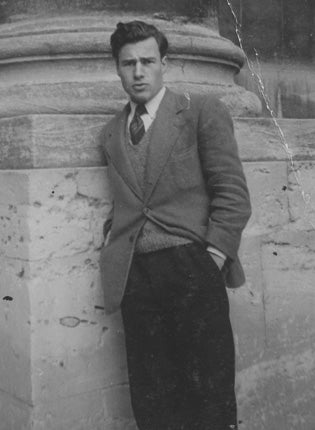Professor Jack Pole: Eminent scholar best known for his work on the history of colonial and revolutionary America

Professor Jack Pole was the leading British historian of America of his generation. His early work was on Abraham Lincoln, but he is best known as a historian of colonial and revolutionary America. He announced this change in direction with his book Political Representation in England and the origins of the American republic (1966), a major work that explored the rise of the notion that legislators should represent people rather than special interests, whether land or commerce. His interest in the history of American political ideas and institutions would result in a number of other important publications, among them Foundations of American independence 1763-1815 (1972), The Pursuit of equality in American history (1978), and The gift of government: political responsibility from the English restoration to American independence (1983).
The son of Jewish immigrants, Jack Richon Pole was educated at King Alfred School, Hampstead and, following military service, went up to Queen's College, Oxford, where he got a First in Modern History. He went on to Princeton, where he received his PhD in 1953. For a short time he was also an instructor at Princeton, but in 1953 he returned to Britain to take up a lectureship in American History at University College London. Ten years later, he moved to Cambridge University, where he became Reader in American History and Government.
Pole's growing reputation on both sides of the Atlantic resulted in invitations to teach and research in the United States. He was a Visiting Professor at Berkeley in 1960-61 and a Fellow and Scholar at both the Center for Advanced Study in Behavioral Sciences, Stanford University (1969-70), and the Wilson International Center, Washington DC (1978-79). He formed close working relationships with Americans scholars, among them Jack Greene of Johns Hopkins University, with whom he edited the immensely influential volume, Colonial British America: essays in the new history of the early modern era (1983). The two scholars would work again on The Blackwell Encyclopedia of the American Revolution (1991).
Pole's work was undoubtedly influenced by political events in the United States and, in particular, the Civil Rights movement of the 1950s and 1960s. At Cambridge he taught a popular course on American race-relations that not only covered legal and constitutional issues, but also introduced undergraduates to black figures whose writings were then relatively unknown in Britain. Old enough to have met the leading black intellectual W.E.B. DuBois, Pole retained a lifelong interest in African-American history and was instrumental in introducing subjects like slavery and black leadership into the Cambridge syllabus.
In 1979 Pole left Cambridge to become Rhodes Professor of American History and Institutions at Oxford University. At the time, the chair had been vacant for a year, and the subject was in urgent need of rejuvenation. Undaunted, Pole worked tirelessly to raise the profile of American History, both inside and outside the university, until his retirement in 1989. His weekly seminar was an important venue for British and American graduate students, as well as a stopping-off place for countless American scholars, many of whom were Pole's close friends. He chaired these seminars with a characteristic lack of fluster but at the same time with a sharp eye for the weaknesses in speakers' arguments.
As befitted a man of his eminence, Pole held a long list of academic distinctions. He was a Fellow of the Royal Historical Society and the British Academy; a member of the Academie Européenne d'Histoire and the Institute for Early American History and Culture; and an Honorary Member of the American Historical Association and the Historical Society of Ghana. In 2000 he was also made Honorary Vice-President of the Association of British American Nineteenth-Century Historians.
Equally significant was his contribution to international research and collaboration. Between 1990 and 2000 he was Vice President of the International Commission for the History of Representative and Parliamentary Institutions, a group that brought together historians as well as social scientists and facilitated the exchange of ideas and information about political theory and the institutional practice of representation.
Firm in his convictions, Pole set himself and his students the highest of standards. He was increasingly critical of what he saw as a decline in standards of written English among Oxford undergraduates, pointedly reminding the readers of The London Review of Books in 1987 that there was a vital connection "between the principles of grammar and ultimate clarity of thought and expression". But Pole's bark was often worse than his bite. He was extremely loyal to his graduate students, whom he nurtured with great care and attention, and took great pride in their achievements.
Outside academia, one of Pole's great passions was cricket. He was a member of the MCC and for many years played for Trojan Wanderers Cricket Club, which he co-founded in 1957. Characteristically, he played cricket with great intensity, even into his sixties; it was a brave person, indeed, who approached Pole after he had been dismissed for a low score. Later in life he took up drawing and painting. One of his proudest achievements was the exhibition of his work at Wolfson College in 2001.
......... John Oldfield
Jack Richon Pole, historian: born 14 March 1922; Rhodes Professor of American History and Institutions, Oxford University 1979–89; Fellow of St Catherine's College 1979-; married 1952 Marilyn Mitchell (marriage dissolved 1988, died 2006; two daughters, one son); died 30 January 2010.
Subscribe to Independent Premium to bookmark this article
Want to bookmark your favourite articles and stories to read or reference later? Start your Independent Premium subscription today.

Join our commenting forum
Join thought-provoking conversations, follow other Independent readers and see their replies